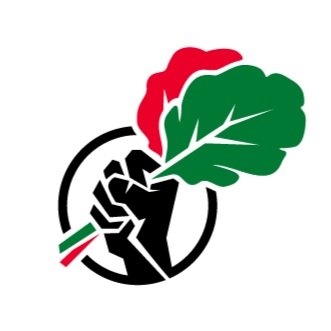The 50th Anniversary of New Communities: The First and Black Community Land Trust
The 50th anniversary of New Communities, the first and Black, community land trust was equal celebration, commemoration, and opportunity. The legacy and enduring symbol of New Communities remains a shining beacon still some five decades after its coming into existence, through years of struggle and adversity, where it is able to stand today as a gathering point for those who seek to carry its vision forward.
The event brought together many different organizations whose underlying emphasis is the land; from urban farms like Habesha, who brought out a strong contingent, to national housing rights networks like Right to the City, who also brought out a contingent of folks. Indeed, a number of members of the National Black Food and Justice Alliance were also present, including Savi Horne with the Land Loss Prevention Project in North Carolina, Leah Penniman of Soul Fire Farm in New York, Zachary Murray with Southeastern African American Farmers Organic Network (and Oakland Community Land Trust), and Jenga Mwendo with the Backyard Gardeners Network (and Crescent City Community Land Trust) in New Orleans--as well as our national staff, Dara Cooper, Asha Carter, and randolph carr. To be sure, there were many others-- in all, nearly 300 people-- for whom New Communities represented a needed model for a needed movement. Since 1969, over 200 community land trusts have been formed across the country, most in urban areas where housing affordability is threatened. This fact highlights the ground covered and how much further the model seeded by New Communities has to grow.
We gathered on a former plantation ground, now a 1600 acre working farm and retreat center named Resora, the current operation of New Communities. The entire event occurred over the course of four days, beginning Wednesday, October 2nd and ending Saturday, October 5th. With the core of the event taking place over the weekend, Friday and Saturday, there were a variety of offerings in the tent just outside of the antebellum plantation house. A peak moment is when Mrs. Shirley Sherrod was brought to the stage to a standing ovation. She invoked the need to look back as we moved forward, sharing such trying moments as their long legal battle with the USDA as part of the Pigford settlement, the steady challenge of losing the brightest and most committed to the call of the city, and the resiliency which allowed New Communities to stand today. Powerfully, Mrs. Shirley Sherrod, to cheers and applauds, said “We need a movement.” She spoke with vigor when she proclaimed the need to bridge the divide between urban and rural issues, when she reminded us that it couldn’t just be about housing but also had to be about the land.
The gathering was also a fundraiser. New Communities unveiled its capital campaign whose goal it is to raise $5 million dollars in support of the expanded vision of what New Communities can be in this moment. Already, the farm has served as a training ground for local farmers. In the face of staggering unemployment, rising out-migration, persistent food insecurity, health disparities, and the lack of infrastructure and investment – New Communities envisions a food hub that can be a solution to the growing problems. In support of their campaign,Andrew Young, who has served as the Mayor of Atlanta, Georgia Congressman, and an Ambassador to the United Nations gave his reflections on the importance of New Communities and Albany, Georgia to the Civil Rights Movement of the 50's and 60’s.
The spirit of a movement to come was best captured in the workshops of the final day. There were several workshops, some happening simultaneously, which complemented and layered one another, only adding to the refrain by Mrs. Shirley Sherrod proclaiming, “We need a movement”. In the morning, the Alliance led a workshop on Urban Gardening that focused on the value of urban gardening and bridging the connection between urban and rural enterprises. The main assertion: our individual farms and gardens will not survive without strong movement. Put simply, our work cannot exist in silos and to achieve the scale of work we envision, we must work collectively. At the same time, a panel discussion on rural leadership brought together an inter-generational conversation around the challenges unique to the rural landscape.
The morning workshops were followed by workshops from Right to the City and Project South. There was a rich exchange and lots of questions around the application and experience within current Community Land Trust and continued discussion on movement building in this moment.


